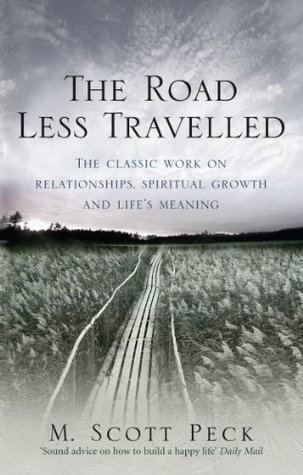More on this book
Community
Kindle Notes & Highlights
Read between
February 26, 2020 - February 20, 2021
‘The single greatest problem in this army, or I guess in any organization, is that most of the executives will sit looking at problems in their units, staring them right in the face, doing nothing, as if these problems will go away if they sit there long enough.’
The saying of the sixties (attributed to Eldridge Cleaver) speaks to all of us for all time: ‘If you are not part of the solution, then you are part of the problem.’
I define love thus: The will to extend one’s self for the purpose of nurturing one’s own or another’s spiritual growth.
Falling in love is not an act of will. It is not a conscious choice. No matter how open to or eager for it we may be, the experience may still elude us. Contrarily, the experience may capture us at times when we are definitely not seeking it, when it is inconvenient and undesirable. We are as likely to fall in love with someone with whom we are obviously ill matched as with someone more suitable. Indeed, we may not even like or admire the object of our passion, yet, try as we might, we may not be able to fall in love with a person whom we deeply respect and with whom a deep relationship would
...more
Love is the free exercise of choice. Two people love each other only when they are quite capable of living without each other but choose to live with each other.’
We all – each and every one of us – even if we try to pretend to others and to ourselves that we don’t – have dependency needs and feelings. All of us have desires to be babied, to be nurtured without effort on our parts, to be cared for by persons stronger than us who have our interests truly at heart. No matter how strong we are, no matter how caring and responsible and adult, if we look clearly into ourselves we will find the wish to be taken care of for a change. Each one of us, no matter how old and mature, looks for and would like to have in his or her life a satisfying mother figure and
...more
This highlight has been truncated due to consecutive passage length restrictions.
In summary, dependency may appear to be love because it is a force that causes people to fiercely attach themselves to one another. But in actuality it is not love; it is a form of antilove. It has its genesis in a parental failure to love and it perpetuates the failure. It seeks to receive rather than to give. It nourishes infantilism rather than growth. It works to trap and constrict rather than to liberate. Ultimately it destroys rather than builds relationships, and it destroys rather than builds people.
Let us turn now from the work of love to the courage of love. When we extend ourselves, our self enters new and unfamiliar territory, so to speak. Our self becomes a new and different self. We do things we are not accustomed to do. We change. The experience of change, of unaccustomed activity, of being on unfamiliar ground, of doing things differently is frightening.
The highest forms of love are inevitably totally free choices and not acts of conformity.
the learning of something new requires a giving up of the old self and a death of outworn knowledge. To develop a broader vision we must be willing to forsake, to kill, our narrower vision.


